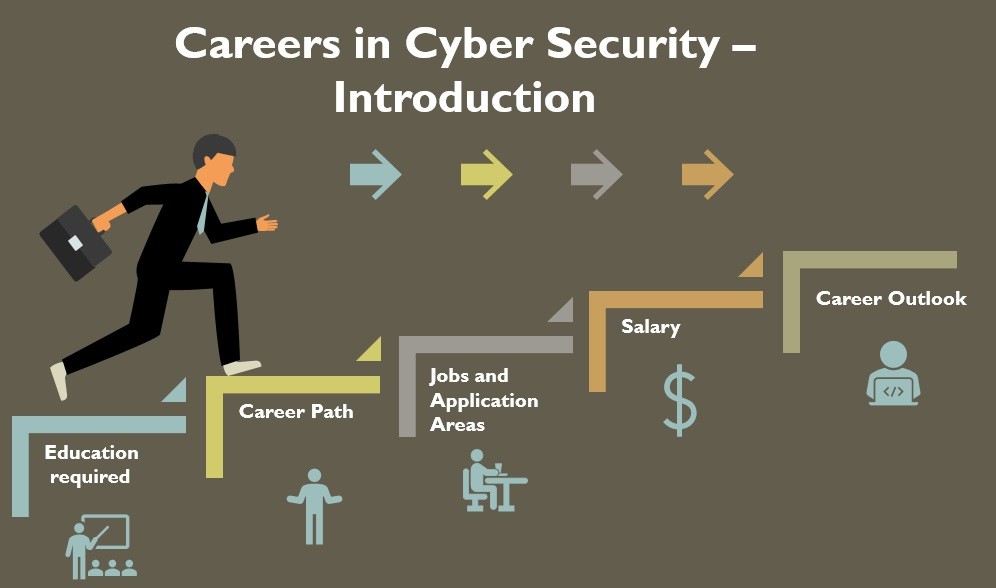In the IT field, certification is essential as it demands skilled and qualified professionals. The diverse and practical skills required in IT make certification crucial. This article delves into the realm of cyber security within IT, focusing on common job roles in Australia that often necessitate a diploma in IT cyber security.
What jobs you can apply with a Diploma of IT Cyber Security in Australia?
Here are some common job roles that typically require a diploma in IT cyber security (From Seek job search)
Cyber Security Analyst: Responsible for monitoring computer networks and systems for security breaches, investigating security incidents, and implementing security measures to protect against cyber threats.
Security Consultant: Provides expert advice and guidance to organizations on cyber security best practices, risk management, and compliance with regulatory requirements.
Penetration Tester (Ethical Hacker): Conducts controlled penetration tests to identify weaknesses in systems, networks, and applications, and provides recommendations for remediation to improve overall security posture.
Incident Responder: Detects, analyzes, and responds to security incidents and breaches, investigates security alerts, analyzes forensic evidence, and coordinates incident response efforts to minimize the impact of cyber-attacks.
Security Operations Center (SOC) Analyst: Monitors security alerts and events generated by security systems, analyzes potential security incidents, and escalates identified threats for further investigation or remediation.
Information Security Officer: Develops, implements, and maintains an organization’s information security policies, procedures, and controls, assesses security risks, ensures compliance with regulatory requirements, and promotes a culture of security awareness throughout the organization.
Security Administrator: Manages and maintains security systems and controls, administers user access and permissions, and ensures compliance with security policies and procedures.
Network Security Engineer: Designs, implements, and maintains secure network architectures and infrastructure, configures, and manages firewalls, intrusion detection/prevention systems, and VPNs, and conducts security assessments and audits.

Source IMG: https://www.linkedin.com/pulse/career-cyber-security-build-your-successful-md-josheb-mia
What the essential technical skills you should learn when studying a diploma of IT Cyber Security?
Network Security: Understanding network protocols, firewalls, intrusion detection systems, and VPNs is crucial for protecting networks from unauthorized access and cyber-attacks.
Cryptography: Knowledge of cryptographic algorithms, encryption techniques, digital signatures, and secure key management is essential for securing sensitive data and communications.
Ethical Hacking: Learning ethical hacking techniques, such as penetration testing, vulnerability assessment, and exploitation, helps identify and remediate security vulnerabilities before attackers can exploit them.
Incident Response: Proficiency in incident response procedures, including detecting, analyzing, and mitigating security incidents, is critical for minimizing the impact of cyber-attacks and restoring systems to normal operation.
Security Tools: Familiarity with a range of security tools and technologies, such as antivirus software, intrusion detection/prevention systems (IDS/IPS), SIEM (Security Information and Event Management) solutions, and forensic tools, enables students to effectively monitor and defend against cyber threats.
Operating System Security: Understanding the security features and configurations of popular operating systems (e.g., Windows, Linux, macOS) is essential for securing endpoints and servers from malware, unauthorized access, and other security risks.
Web Application Security: Knowledge of web application security principles, secure coding practices, and common vulnerabilities (e.g., SQL injection, XSS, CSRF) is important for securing web applications and preventing attacks targeting web-based systems.
Cloud Security: Familiarity with cloud computing concepts, cloud security best practices, and cloud service provider (e.g., AWS, Azure, Google Cloud) security controls enable students to secure data and applications deployed in cloud environments.
Mobile Security: Understanding mobile device security, mobile operating systems (e.g., iOS, Android), mobile app security, and mobile device management (MDM) solutions is essential for securing mobile devices and applications against cyber threats.
Forensics and Incident Analysis: Proficiency in digital forensics techniques, evidence collection, analysis tools, and incident investigation methodologies helps students identify the root cause of security incidents, gather evidence for legal proceedings, and prevent future incidents.
By mastering these technical skills and completing your education and securing an interview, you may be offered the roles and positions listed above. It’s important to note that while the work may be similar across organizations, the specific roles offered may vary. For example, a company might offer an Auditor or Analyst position to newcomers regardless of the job responsibilities, which remain consistent.
A career in Cyber Security offers significant potential for growth in today’s world, where companies invest heavily in protecting their sensitive data and preventing breaches.
Learn more about Brighton College’s IT courses if you want to acknowledge all the IT skills needed for your future jobs:
Diploma of Information Technology (Cyber Security) – Brighton College


